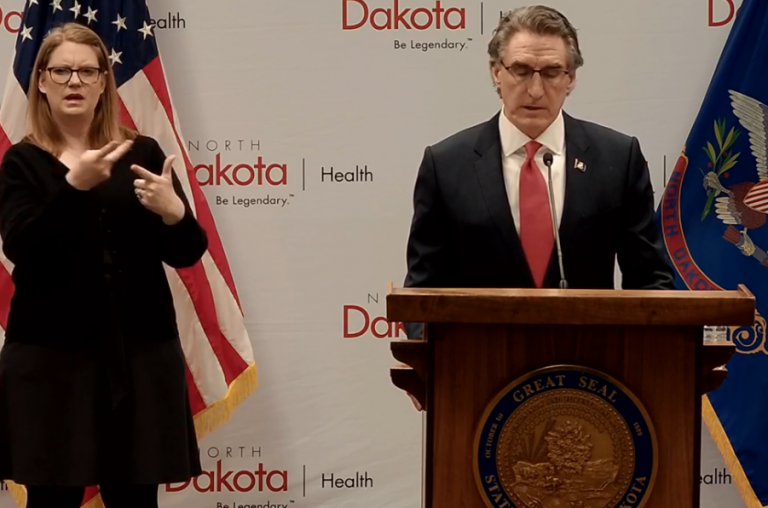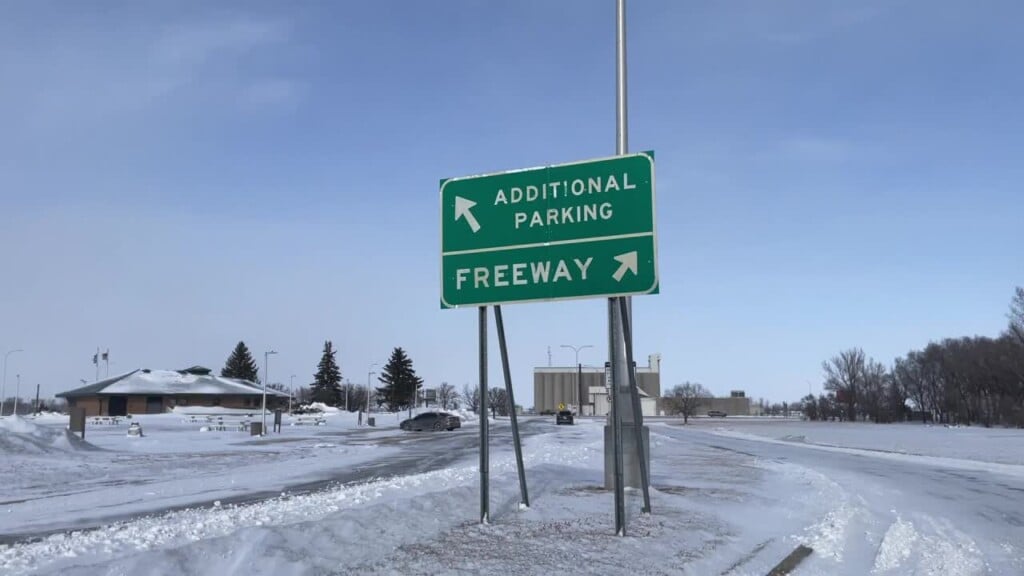Gov. Burgum Extends Business Restrictions To April 30

BISMARCK, N.D. — During his daily COVID-19 briefing, Gov. Doug Burgum says North Dakota is not ready to re-open.
He has signed a 10-day extension to his business closure executive order.
It was set to expire on April 20, but it will now be extended to April 30.
The government is working on a step-by-step plan for reopening including widespread rapid testing and robust contact tracing.
The state is reporting its largest single-day increase in cases of the coronavirus.
Department of Health confirming 24 new cases, including 12 in Cass County and 8 in Grand Forks County.
That brings the state’s total to 365.
Cass County leads the state with 135 cases.
Thirteen people are currently hospitalized for the virus.
The state’s coronavirus death toll remains unchanged at nine.
The governor outlined what needs to be in place to have a graduated reopening process past April 30:
- Robust, widespread rapid testing capacity
- Robust contact tracing and infrastructure
- Targeted, effective quarantine
- Protections for the state’s most vulnerable populations
- Sufficient health care capacity, hospital/ICU beds
- Adequate PPE availability for the health care system and public
- New standard operating procedures for reopening
- Plans for dealing with a resurgence or additional waves of COVID-19.
As the state continues working to implement, expand and improve upon these areas with a whole-of-government approach, the North Dakota Department of Commerce will lead the reopening planning efforts, which Burgum dubbed “ND Smart Restart.”
Over the next few days, Commerce, which began forming an Economic Resiliency Team at the outset of the COVID-19 crisis, will work directly with associations that represent the businesses affected by the closures to develop new standard operating procedures for a graduated safe reopening. Such procedures could include daily disinfection procedures, mandatory health and hygiene protocols for employees, discontinued use of shared items, limiting the number of customers allowed into the business at one time, and requiring that masks be worn inside the business.






